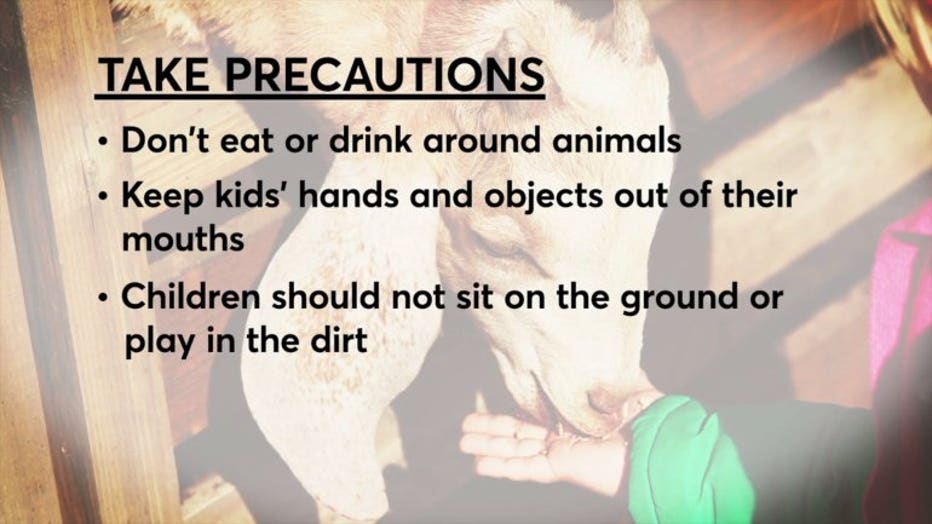Germ safety at fairs, farms and petting zoos
The recent E. coli outbreak linked to animals at the San Diego County Fair highlights how this kind of contamination is more common than you might think. Every year many people,
including children, get sick after having contact with animals. Consumer Reports has some simple tips to keep your family safe the next time you’re around animals at a farm, fair, or zoo.

Some of the most common harmful germs people get from animals at exhibits are E. coli, cryptosporidium, and salmonella. The easiest way to keep safe is by washing your hands.
The CDC says to wash your hands immediately after touching animals. Even if you don’t touch them, hand-washing is still important, because the areas where animals live can be contaminated.
Using running water and soap to wash your hands is always best. But if they’re not available, use a hand sanitizer with at least 60 percent alcohol, and wash your hands with soap and water as soon as possible.
To limit your exposure to potentially harmful germs, don’t eat or drink near animals, and make sure children keep their hands, fingers, and objects out of their mouth when they’re around animals. And kids shouldn’t sit on the ground or play in dirt in areas where animals live.

The benefits of being outside working with or observing animals outweigh the risks, so you should teach kids how to manage those risks. Another tip: Don't allow children to put their face in an animal’s face. You shouldn’t either.
Follow these tips with your own pets as well. While the risks aren’t as high, dogs and cats can make people sick, too, so wash your hands after feeding or playing with your furry friends.

All Consumer Reports material Copyright 2019 Consumer Reports, Inc. ALL RIGHTS RESERVED. Consumer Reports is a not-for-profit organization which accepts no advertising. It has no commercial relationship with any advertiser or sponsor on this site. Fo

